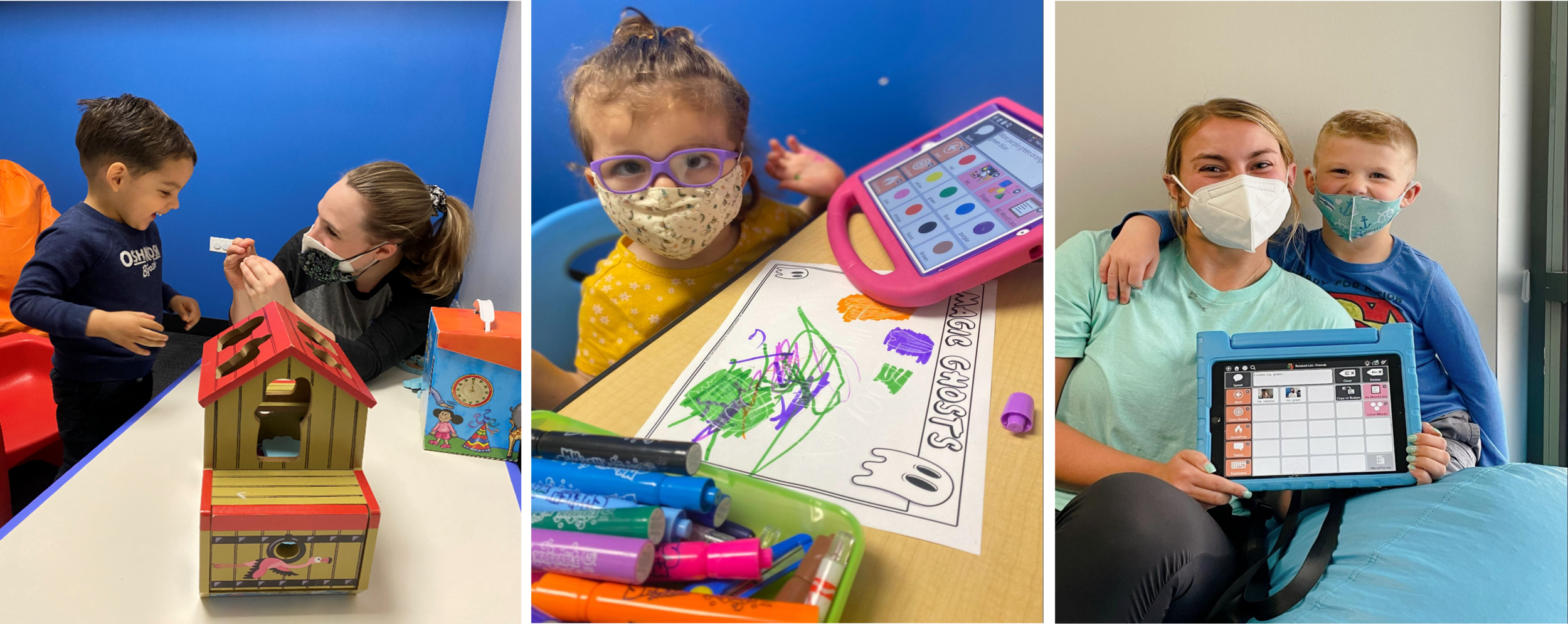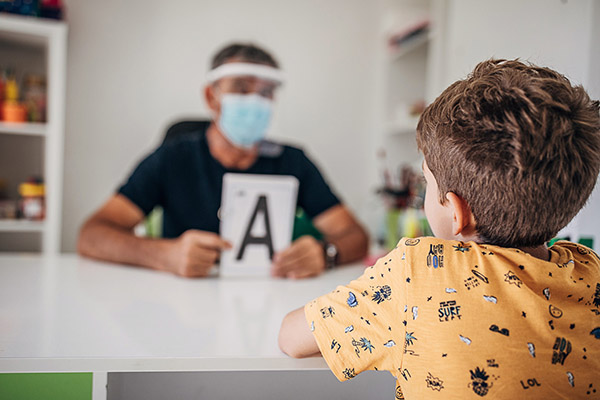Understanding How a Speech Pathologist Works with Different Age Groups
Understanding How a Speech Pathologist Works with Different Age Groups
Blog Article
Just How a Speech Pathologist Can Help Improve Communication Skills
Efficient interaction is a keystone of expert and personal success, yet several people face obstacles that prevent their capacity to express themselves plainly. A speech pathologist is geared up to address these barriers through targeted analysis and treatment techniques tailored to each person's demands. By employing evidence-based therapeutic strategies, they not only work to enhance speech and language problems however likewise improve total communicative capability. Understanding the diverse duty of a speech pathologist reveals just how their know-how can transform lives, inviting a more detailed examination of the particular methods and results connected with their method.
Understanding Communication Disorders
Recognizing interaction disorders is vital for identifying exactly how they impact individuals' capacity to express themselves and engage with others. Communication problems incorporate a broad variety of troubles that affect speech, language, and social communication, commonly preventing effective communication. These problems can occur from various aspects, consisting of neurological conditions, developmental delays, physical problems, or psychological concerns.
Speech problems may materialize as difficulties in fluency, expression, or voice production, affecting how words are noticable or talked. Language conditions, on the other hand, entail difficulties in understanding or using language, which can hamper both verbal and non-verbal interaction. Social interaction disorders are defined by difficulties in the pragmatic aspects of interaction, such as taking turns in conversation or understanding social cues.
The consequences of interaction conditions are extensive, impacting not just the person's capacity to communicate thoughts and emotions however also their social partnerships, academic chances, and general lifestyle. Understanding of these conditions can foster empathy and support, encouraging efficient techniques for communication and involvement. Comprehending the intricacies of communication disorders is an important step in the direction of promoting inclusivity and addressing the requirements of those impacted.
Role of a Speech Pathologist
Speech pathologists regularly play an important role in treating and detecting interaction disorders, employing a variety of evidence-based strategies customized per person's needs. These professionals deal with people across the life-span, from kids with speech hold-ups to grownups recuperating from strokes or traumatic mind injuries. Their know-how encompasses a range of communication problems, consisting of expression, language, voice, and fluency disorders.
In healing settings, speech pathologists use organized interventions developed to enhance interaction abilities. They may carry out approaches such as speech exercises, language games, and social communication training to assist in enhancements in receptive and meaningful language capacities. Speech Pathologist. In addition, they inform customers and their families concerning reliable communication techniques and flexible methods to browse daily communications
Beyond direct therapy, speech pathologists team up with other healthcare teachers, caretakers, and professionals to make sure a detailed strategy to therapy. They support for clients by providing sources and support, allowing people to accomplish their interaction goals and boost their total quality of life. As professionals in the area, speech pathologists are necessary in promoting reliable interaction, advertising freedom, and enhancing social engagement for those with interaction obstacles.
Assessment and Diagnosis Refine
The analysis and medical diagnosis procedure performed by speech pathologists typically includes a detailed analysis to identify communication conditions properly. This process starts with a detailed instance history, where the clinician collects relevant info about the individual's medical, instructional, and developmental history. Understanding the context of the individual's interaction troubles is essential for an exact medical diagnosis.
Complying with the medical history, speech pathologists make use of informal evaluations and standardized examinations to review numerous aspects of interaction, consisting of speech sound production, language understanding, meaningful language, and social interaction abilities. These evaluations are customized to the individual's age and specific worries, providing valuable data for analysis.
Monitoring is likewise a critical element of the analysis process, as it enables the clinician to see firsthand exactly how the individual connects in natural settings. In addition, interviews with member of the family and teachers can supply insight right into the individual's interaction challenges across different environments.
As soon as the evaluation is total, the speech pathologist synthesizes the findings to figure out a diagnosis and advise proper treatments. This extensive analysis procedure ensures that individuals receive targeted support tailored to their special communication demands, laying the structure for effective healing methods.
Restorative Methods and Approaches
Various therapeutic techniques and approaches are employed by speech pathologists to attend this article to a variety of communication disorders successfully. One commonly utilized approach is articulation therapy, which concentrates on remedying speech seems with repetition and aesthetic cues. This strategy is particularly helpful for people with speech sound disorders.
One more reliable strategy is language treatment, which improves both receptive and meaningful language abilities. This may include interactive tasks that promote vocabulary growth, sentence structure understanding, and conversational abilities. In addition, speech pathologists commonly use social skills educating to boost pragmatic language capabilities, making it possible for individuals to navigate social interactions much more successfully.
Fluency shaping and stuttering alteration methods are especially designed to help those experiencing fluency conditions. These strategies aid clients create smoother speech patterns and take care of the physical and psychological parts of stuttering.
Additionally, alternate and augmentative communication (AAC) systems are used for people with extreme interaction disabilities. These systems, which can include gestures, symbols, or electronic gadgets, offer vital assistance for reliable communication.
Benefits of Speech Therapy

In addition, speech treatment can assist in establishing important listening and comprehension skills, cultivating much better communication in conversations. Individuals with cognitive-communication problems can additionally profit, as treatment focuses on enhancing memory and problem-solving capabilities, important for reliable communication.
One more important element is the psychological support given throughout treatment sessions. Speech pathologists develop a secure setting, encouraging patients to overcome stress and anxiety and disappointment pertaining to their communication issues. This support can cause boosted self-worth and total mental well-being.
In addition, very early treatment through speech therapy can stop more issues, making certain that people reach their full communicative possibility. In general, the advantages of speech therapy expand beyond plain speech enhancement, positively affecting numerous dimensions of life for those affected by interaction troubles.
Verdict
In recap, speech pathologists play a critical duty in resolving interaction problems via evaluation, diagnosis, and customized healing interventions. By employing evidence-based strategies, these experts boost individuals' speech and language capabilities, cultivating boosted clearness, fluency, and social communication skills. The advantages of very early treatment underscore the significance of looking for aid from speech pathologists, as their experience can considerably improve communicative possibility, inevitably resulting in greater success in both personal and expert rounds.

Speech pathologists frequently play a crucial duty in detecting and treating interaction problems, employing a variety of evidence-based strategies tailored to each person's demands. As experts in the area, speech pathologists are vital in promoting effective communication, advertising independence, and boosting social engagement for those with interaction difficulties.

Report this page